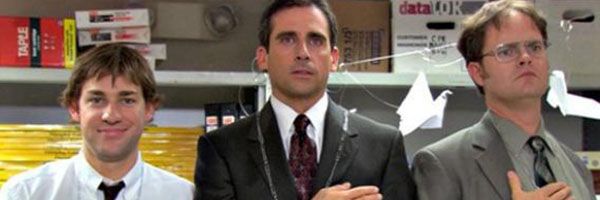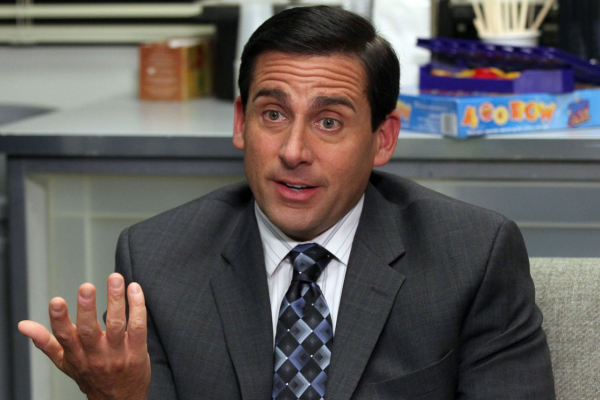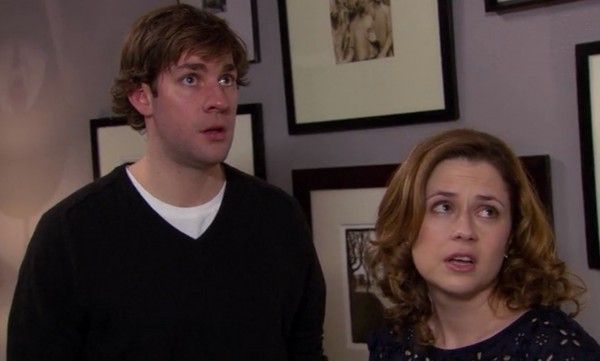Filmmaker Paul Feig is probably best known for co-creating the iconic TV series Freaks and Geeks and writing and directing hit films as varied as Bridesmaids, Spy, and A Simple Favor, but he was also responsible for helping steer the direction of the U.S. The Office—in particular, he was a key player in the episode that shifted the tone of Steve Carell’s Michael Scott character from an insufferable asshole to an insufferable guy who means well. Indeed, in the first season of the U.S. version of The Office, Carell’s Michael Scott was very much modeled after Ricky Gervais’ David Brent, and it wasn’t quite hitting audiences in the way NBC and the show’s writers had hoped.
Appearing on the latest installment of our exclusive remote interview series Collider Connected to talk about his career and the new HBO Max series Love Life, Feig detailed how he worked with The Office team on the show’s second season to hone in on what made Carell so endearing in The 40-Year-Old Virgin, specifically while directing the episode “Office Olympics”:
“That was an interesting episode. That and the one I did after that, the Halloween episode, were where we started to discover the tone that we needed to hit with Steve Carell. The big thing that happened was… in between that six-episode first season and Season 2, 40-Year-Old Virgin came out and went through the roof. There was all this discussion at the network and among ourselves of what’s the difference? Why aren’t we getting an audience for this but he’s so popular? And we all kind of realized well he’s lovable in 40-Year-Old Virgin. So we don’t want to make Michael Scott cuddly and lovable, but we have to be able to at least not just go, ‘Oh he’s such a bore, he’s so mean.’”
A big adjustment happened in “Office Olympics,” in which Michael wins Gold in a stupid office olympics that the staff has put together. As originally scripted, Michael taking the podium and accepting his yogurt-lid medal was supposed to be played for laughs. Instead, Carell put an earnest spin on it:
“We just kind of stumbled upon it when we were doing that end scene in ‘Office Olympics’ when they’re giving him the medal. Because we had him up on the thing, and it’s just supposed to be this joke of he thinks he’s getting this big honor and he’s so proud and everybody’s laughing at him behind his back, but Steve made this great choice to get very teary-eyed during it. He got really emotional. And we’re all like, ‘Oh my gosh!’ I remember running up to him like, ‘Steve, keep going with that. Let’s do another take and really run with that.’”
It marked a turning point for the series:
“That was kind of this weird turning point where it was harder to cut to people laughing at him because we’re all going, ‘Oh God, this poor guy,’ because he got roped into getting this condo he’s gonna buy and stuff. I think that was the moment where it was like, ‘Oh wait there is a way to do this, he can still be insufferable but he can be well-meaning at the same time.’ He can have moments where right when you think he’s gonna be an idiot, he actually does something smart or has a lucid moment where you kind of vest interest in him. And that kind of carried on in the Halloween episode and just really grew from there.”
Feig also reflected on the iconic Season 4 episode “Dinner Party,” which he also directed, and revealed that at the time the episode was released, fans weren’t happy with how uncomfortable it got. A reaction Feig also dealt with on Freaks and Geeks:
“We had the exact same experience on The Office. One of the episodes I directed was called “Dinner Party,” which now everybody says is their favorite episode. When that aired people hated it. They hated it because it was so uncomfortable, and it was so cringe-y and made them so uncomfortable. We got really mean reviews on our message boards for The Office and stuff.”
All’s well that ends well, because “Dinner Party” is a masterpiece and that key Michael Scott change made him one of the most beloved characters in TV history.
For more from Feig, watch our full one-hour conversation below in which we also discuss Bridesmaids, Ghostbusters, Spy, and much more.



